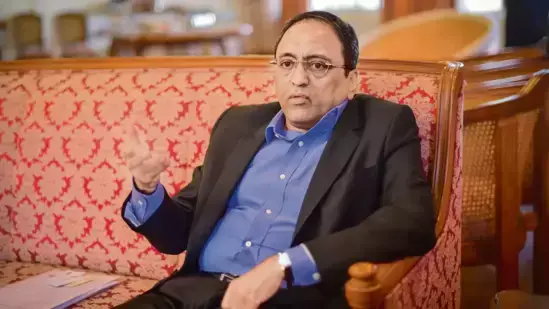
If You Ask an IT Employee to Come to Office, He Says ‘Bye’: L&T Chairman
The debate about work-from-home (WFH) culture has been raging on for quite some time, with proponents arguing that it increases productivity and reduces distractions, while opponents claim that it hampers face-to-face interactions and fosters a sense of isolation. The latest addition to this debate is none other than SN Subrahmanyan, the Chairman of Larsen & Toubro (L&T), one of India’s leading conglomerates.
In a recent interview, Subrahmanyan made some striking remarks about the WFH culture, particularly in the IT sector. According to him, if you ask an IT employee to come to the office and work, they would say “bye” (i.e., resign). These comments have sparked a heated discussion about the future of work and the role of IT employees in the modern workplace.
Subrahmanyan’s statement is a reflection of the changing times and the evolving nature of work. In today’s digital age, technology has made it possible for employees to work from anywhere, at any time. This flexibility has been a major draw for many employees, who value the ability to balance their personal and professional lives.
The Chairman’s remark is also a commentary on the shift in the mindset of employees. Gone are the days when employees were willing to put in long hours at the office, often at the expense of their personal lives. Today, employees are more discerning and expect a better work-life balance. They are willing to walk away if their employers do not accommodate their needs.
Subrahmanyan’s comment is also a reflection of the changing nature of the IT sector itself. The industry has undergone a significant transformation over the past two decades, from being a relatively niche area to becoming a major driver of the global economy. The rise of the gig economy, remote work, and flexible work arrangements has changed the way IT employees work and expect to be treated.
In fact, a recent survey by the National Association of Software and Service Companies (NASSCOM) found that over 60% of IT employees in India prefer to work from home at least two days a week. This trend is likely to continue, as employees seek greater flexibility and autonomy in their work.
So, what does this mean for employers? It means that they need to adapt to the changing times and offer flexible work arrangements to their employees. This includes providing the necessary infrastructure and technology to support remote work, as well as trust and autonomy to employees to manage their work-life balance.
Subrahmanyan’s comment is also a reminder that employers need to rethink their approach to talent management. In today’s competitive job market, employees have more options than ever before. They are not beholden to a single employer and can easily switch to a competitor that offers better working conditions and greater flexibility.
This is particularly true in the IT sector, where talent is in short supply. Employers need to be more innovative and creative in their approach to talent management, offering competitive salaries, benefits, and work-life balance to attract and retain top talent.
In conclusion, Subrahmanyan’s remark about IT employees saying “bye” if asked to come to the office is a reflection of the changing times and the evolving nature of work. It highlights the need for employers to adapt to the changing needs of their employees and offer flexible work arrangements to attract and retain top talent.
As the Chairman of L&T, Subrahmanyan’s comments are particularly significant, given the company’s history and reputation. L&T has been a major player in the Indian economy for over 75 years, and its Chairman’s views on the future of work carry significant weight.
Ultimately, the debate about WFH culture is not about whether it is good or bad, but about how employers can adapt to the changing needs of their employees. By offering flexible work arrangements and trusting employees to manage their work-life balance, employers can attract and retain top talent, drive innovation and productivity, and stay ahead of the competition.






